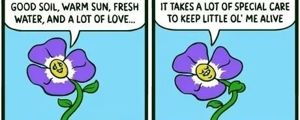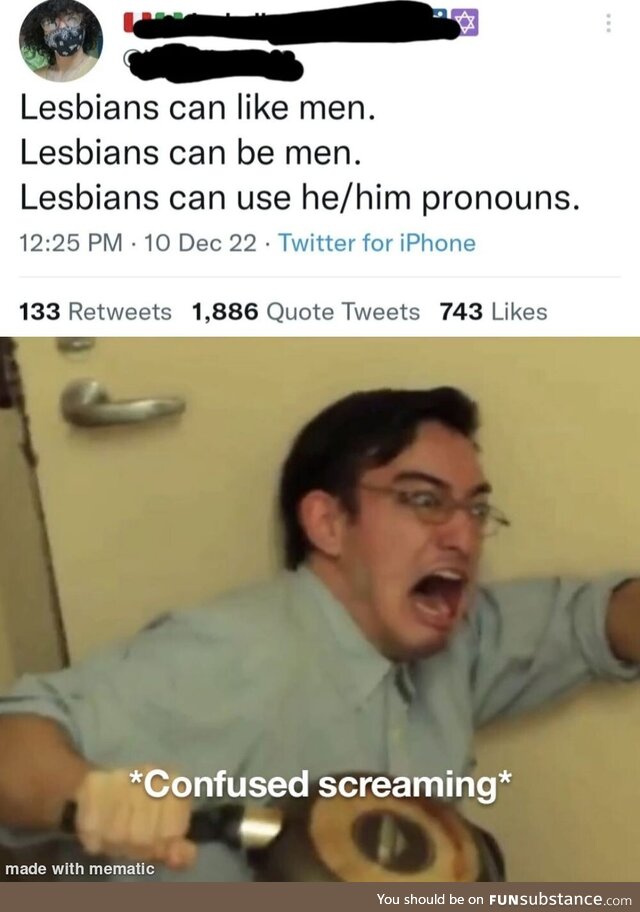Featured Posts

I wish I had a fort

The powerof positive thinking

NASA

Pray for Australia

Take care of each other

She has emerged

My soul feels so much better

I just ordered one. #Just2019HispanicThings

He really wanted his photo at the Halloween party, but was super scared of the spiders

The Only Thing More Contagious Than COVID19 Might Be This Fox's Smile
About
FAQ
Contact
Rules
Terms
Privacy
Feedback
Keyboard Shortcuts:
Previous Post · Next Post · + CTRL Skip Post
Previous Post · Next Post · + CTRL Skip Post
© 2025 FunSubstance · funny and entertaining pictures, memes, gifs & videos.



Speaking on lesbians- look up the definition of lesbian. By the common written definition most women could be said to be lesbians at some point- or in a transient lesbionic state perhaps? And most lesbians could be argued to not be lesbians it depends on perspective. Consider that a label is generally only good for a given moment. Science suggests no states exist which are permanent but we can semi permanently apply a few labels- being dead implies strongly that one cannot become alive again for example. But many or most common labels are transient- applicable in a moment to a specific set of circumstances.
In common speech these things often all get jumbled up or definitions get changed to suit an individual- “oh- well it isn’t lesbian to do XYZ…” and where a label exists to define attributes, that label is effectively useless if the definition is subjective.
If something is labeled “poison” you will assume you probably shouldn’t drink it straight from a bottle right? But what if someone decided to put the “poison” label on anything they think doesn’t taste very good? Understand how that could cause confusion? Mushrooms are fungus generally right? But what if you throw a party and ask your friend to bring fruit juice and they brought mushroom juice because they think a mushroom should be a fruit?
The problem isn’t that people have started brining in genders and sexualities that warp the meaning of labels though- most of you were already misusing the ones we had which is amazing considering that it was mostly a binary system.
The term “feels” became a popular slang term. It has no meaning. It means whatever the speaker wants it to. It’s a word for when there isn’t an appropriate word to describe a feeling or more often, because the speaker lacks the vocabulary to express their feelings and/or doesn’t want to show the vulnerability or eloquence to do so. The term relies on the speaker and listener inferring meaning.
It is generally sufficient in conversation to refer to a four wheeled vehicle as a car or truck as suits. It may be a van or SUV or cross over etc- but it is usually fine to say a general term.